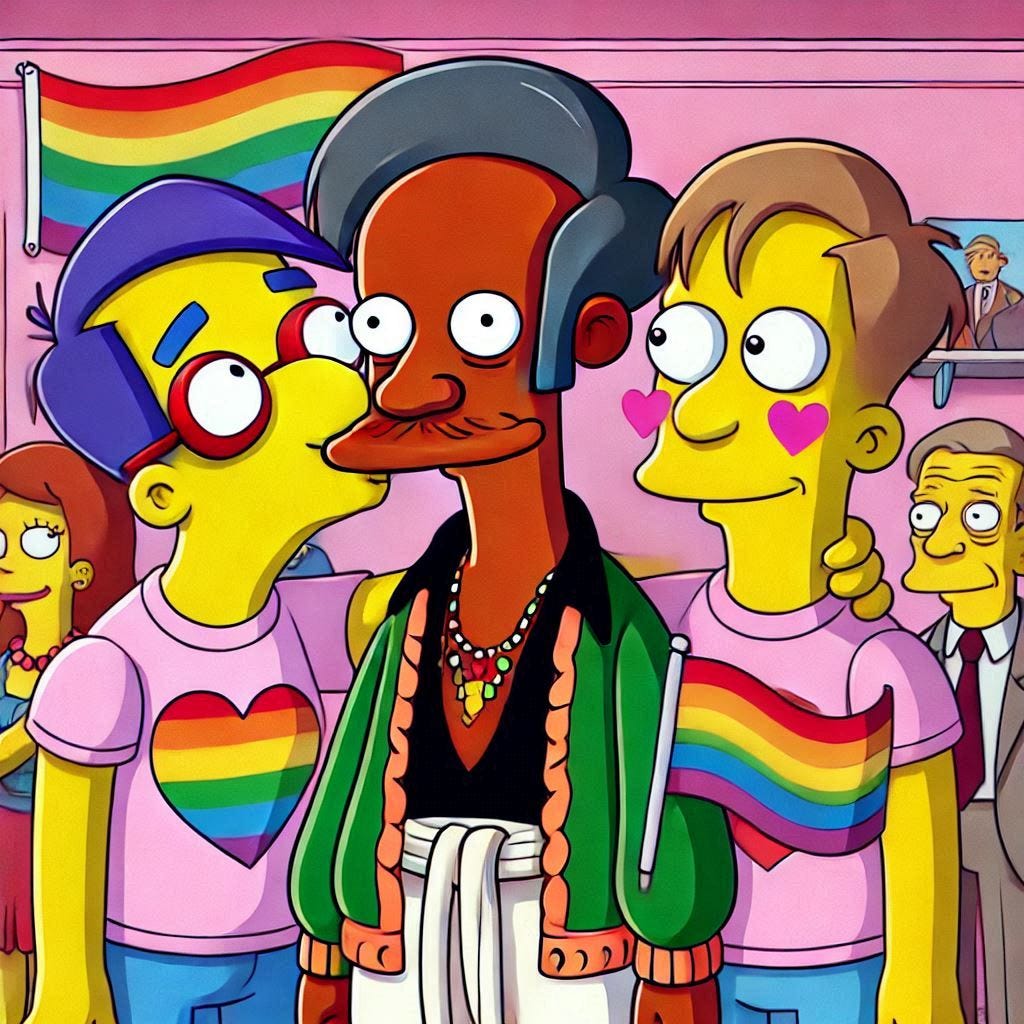Fighting Discrimination Does Not Entail Defending Shitty Social Behavior
rights and dignity and freedom are good, acting like ridiculous screaming children on social media, less so

I’ve written several times about the phenomenon of adolescent women on TikTok pretending to have dissociative identity disorder for social media clout and attention. I’ve focused on it not because I necessarily think the issue itself is particularly important, but rather because it’s so emblematic of what liberalism has become: a political ideology that is utterly incapable of policing itself for its own worst excesses, a collection of well-intentioned people who mistake the responsibility to fight discrimination for a broad, vague duty to shield certain groups of people from any criticism.
For the book I’m currently writing, I’m talking to a ton of people in the broad world of mental health - psychiatrists, therapists, researchers, policymakers, journalists, fellow patients - and I’ve brought up the TikTok DID community over and over again. Remarkably, not one person defends the phenomenon as a true expression of genuine illness, not even a few disability rights activists I’ve talked to, who usually have an ethic of never questioning a disability claim. Countless normie liberals I’ve chatter with, over the past several years, have also accepted my basic position that these young women don’t actually have dissociative identity disorder. But, also, almost no one is willing to affirmatively say anything about this dynamic themselves. Indeed, the Verge reported that many experts have decided that the costs of speaking out about that whole culture just aren’t worth it. And so you have a set of behaviors that no one defends but that no one feels comfortable criticizing, thanks to the pathologies of 21st century liberalism and online rage. That’s what I’m really here to talk to you about today.
I don’t, of course, want to be too harsh on the individual young women who have turned a debilitating and controversial disorder into an opportunity to put on vertical video fashion shows; they’re just kids and kids do stupid shit, sometimes even genuinely offensive shit. What you usually have, or used to have, is the ability to tell someone doing stupid shit to knock it off. Not oppress anyone, not humiliate anyone, not permanently shun anyone. But just to say, “You don’t have dissociative identity disorder, pretending you do is unhealthy and offensive towards people who actually have serious mental illnesses, knock it off.” I find that very easy to say. But clearly a lot of people don’t, and the reasons are fairly obvious. First, despite whatever vibe shift we may be living through, it remains the case that in progressive discursive spaces, saying the wrong thing is still very fraught and can result in accusations of bigotry that are personally and professionally damaging. Second, liberals have trained themselves to avoid any position at all that might be construed as siding with the enemy, as a matter of in-group identification. Take it from me: “A lot of people in Gen Z appear to be lacking in emotional resilience, in a way that’s unhealthy for them” has become, in the internet-soaked mind, “Gen Z is a bunch of snowflakes,” and so a ton of liberals recoil at that idea. Can’t appear to make a concession to the enemy! I’m afraid we do not have a vocabulary for critical solidarity anymore.
All of this is bad, and you only have to look at how incredibly harsh certain slices of “queer fandom” can be to see what I’m talking about.
The runaway success of Wicked has resulted in a marked uptick in a very annoying set of online behaviors: insanely aggressive insistence about the romantic attractions and sexual identities of fictional characters. These are members of the “fandom” community who have a preferred “ship” and will go to incredible emotional extremes in voicing that preference - sometimes abusive extremes. Wicked has always had a large LGBTQ fanbase, which is cool, and a lot of them have very enthusiastic shipping preferences about the play and movie. Again, that’s cool, have fun. But the attendant social media behavior is a perfect example of what I’m talking about: Twitter and TikTok and (especially) Tumblr are filled with extremely passionate Wicked fans who insist that essentially every character in the movie is gay, and that those gay characters are all in specific imaginary gay relationships, and if you disagree they’ll call you homophobic, or if they’re in a bad mood, maybe SWAT you. This doesn’t make the Wicked fandom unique; on the contrary, there are all manner of truly horrifically behaved fan cultures out there. And some of them have weaponized evolving social mores regarding LGBTQ rights to angrily insist on their preferred pairings. These anti-social behaviors come from certain fan communities, niche but loud, that angrily insist that if you criticize them, you are a bigot. I find it all very exhausting! And what’s even more exhausting is knowing that there’s many more that would insist what I’ve just written here is targeting those fans because they’re queer, rather than because they’re rude, aggressive, and self-pitying.
This is a problem that any healthy ideological movement should be able to deal with. Liberals could say, “Hey, you can’t enforce your pop culture tastes with accusations of bigotry in that way, it’s unfair and it demeans allegations of actual homophobic conduct, knock it off.” That’s it, that’s all that’s required, the ability to tell people to knock it off! And yet liberal norms, and especially online liberal norms, have evolved in such a way that this kind of ultimately-trivial bad behavior cannot be internally regulated, for fear of contributing to bigotries that actually have very real and ugly expressions elsewhere in the world. It sucks.

